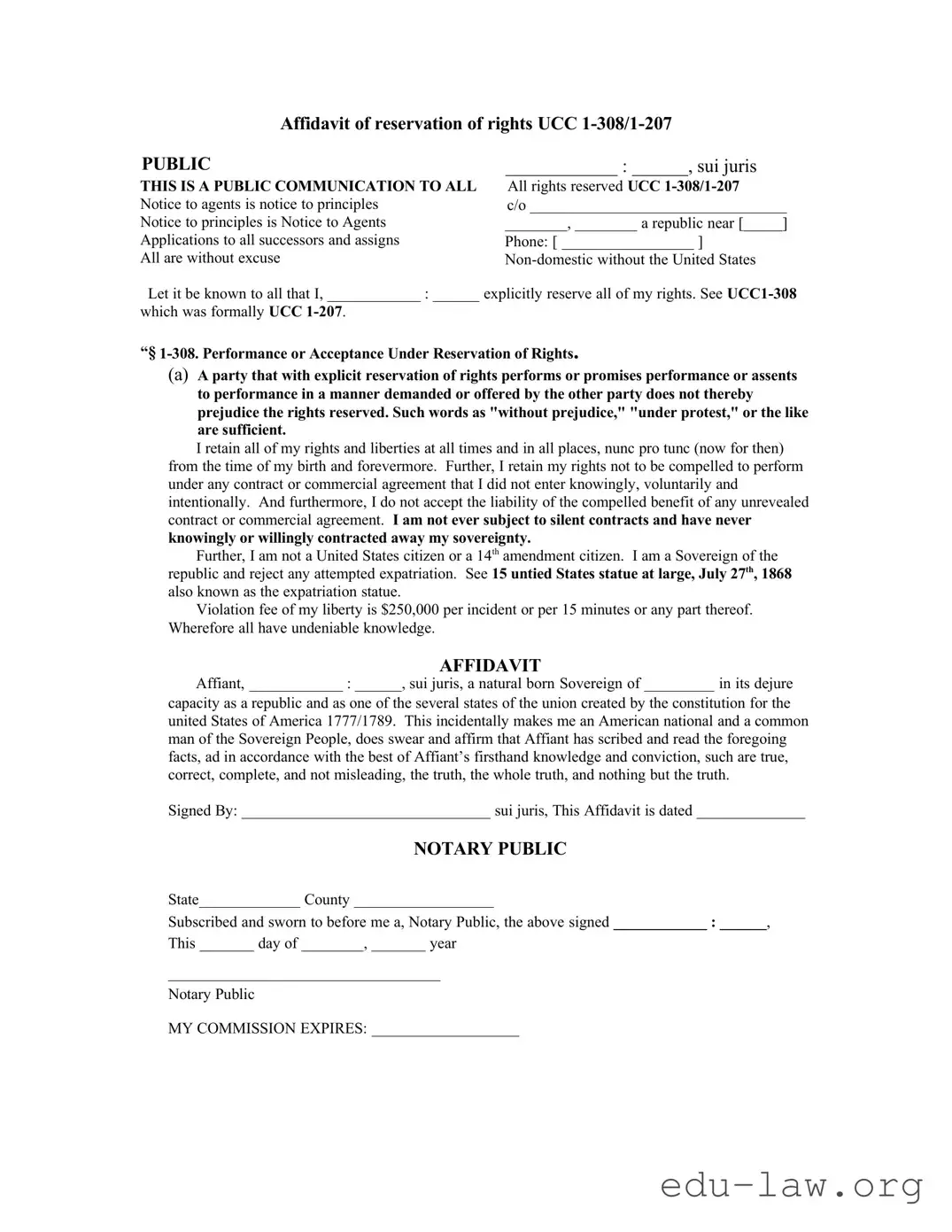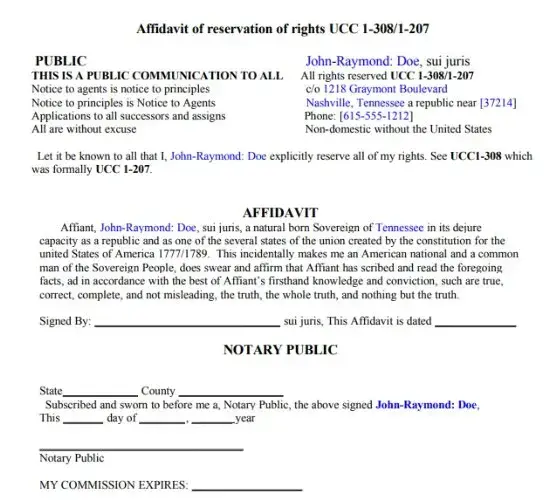What is the UCC 1-308 form?
The UCC 1-308 form, also known as the Affidavit of Reservation of Rights, is a public document that individuals can use to formally reserve their rights under the Uniform Commercial Code. It communicates that the affiant explicitly reserves all rights that may be impacted by any agreements or contracts. The form is often utilized to clarify that the individual does not waive any rights while engaging in performance or acceptance of an agreement.
Who should use the UCC 1-308 form?
This form is generally used by individuals who wish to assert their rights in legal or commercial dealings. It may be particularly relevant for those who have concerns about entering into contracts or agreements that could compromise their sovereignty or individual rights. People who identify as sovereign citizens or wish to emphasize their non-citizen status often use this form.
What rights can be reserved using this form?
By completing the UCC 1-308 form, an individual can reserve various rights, including the right not to be compelled to perform under contracts that were not entered into knowingly or willingly. The form emphasizes retaining all liberties, rights to sovereignty, and the right not to accept liability for undisclosed agreements.
Is the UCC 1-308 form legally binding?
The UCC 1-308 form serves as a declaration of intent by the individual, but its enforceability in a legal context may depend on various factors, including local laws and the specific circumstances surrounding its use. While it asserts the individual’s rights, its legal effect may not be universally recognized or upheld in court.
What is the significance of the term 'sui juris' on the form?
The term 'sui juris' means that the person is of their own right and has the legal capacity to act on their own behalf. Including this term establishes the individual as not being under any legal disability, reinforcing their autonomy and ability to reserve rights without external compulsion.
Can anyone fill out and sign a UCC 1-308 form?
Yes, any individual can fill out and sign a UCC 1-308 form, provided they are acting in their own capacity and are capable of understanding the implications of the document. However, it is advisable to seek guidance to ensure that the contents accurately reflect the individual’s intentions and circumstances.
What does 'non-domestic' mean in the context of the form?
The term 'non-domestic' indicates that the individual is asserting their status as not being a citizen of the United States, particularly under the 14th Amendment. This distinction is often made by those who consider themselves to be acting as sovereigns within a republic, as opposed to being subject to federal jurisdiction.
What are the potential consequences of submitting a UCC 1-308 form?
Submitting a UCC 1-308 form may have various implications, including expressing one’s intent to reserve rights and potentially impacting how contracts or agreements are interpreted by the other parties. However, the legal ramifications can vary widely based on jurisdiction and specific situations.
Is notarization required for the UCC 1-308 form?
Notarization is generally recommended for the UCC 1-308 form as it adds an element of authenticity and formal recognition to the declaration. A notary public can attest to the signing of the document, providing credibility and potentially aiding in its acceptance in legal contexts.

